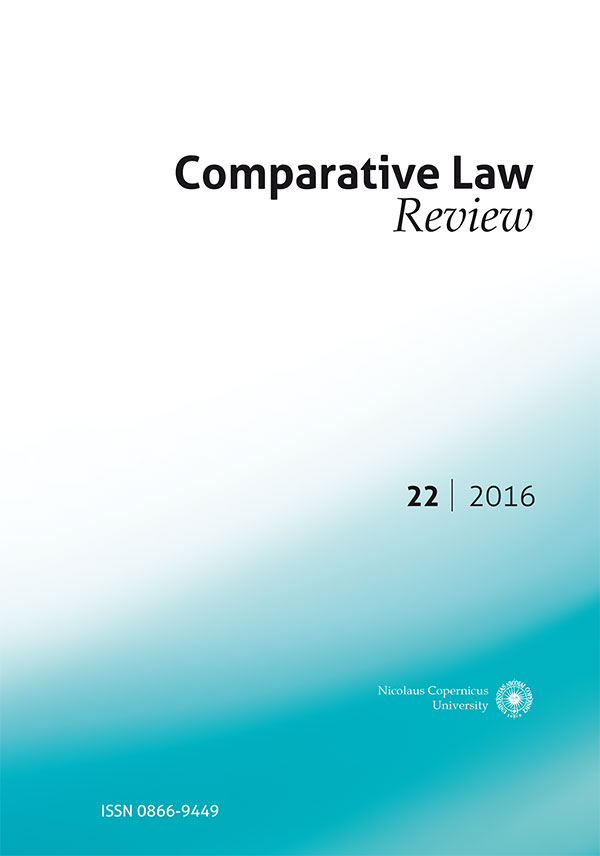HOW TO EFFICIENTLY PROTECT A DOMAIN NAME?
DOI:
https://doi.org/10.12775/CLR.2016.010Keywords
cybersquatting, typosquatting, cyber smearing, cyberwildcatting, disputes, internet domainsAbstract
Cybercrime rates are increasing in Poland and throughout the world. There are many types of offences concerning internet domains, among others, cybersquatting, typosquatting, cyber smearing, and cyberwildcatting.The following article is a comparative study of the settlement of disputes concerning internet domain names taking as an example the Domain Name Court of Arbitration at the Polish Chamber of Information Technology and Telecommunications (PIIT) and the World Intellectual Property Organization (WIPO) Arbitration and Mediation Center. Between the two processes of recovery of the domains there are many similarities. During the study legislation was sought in the Polish legal system, which is related to internet domains. In Poland, there is no particular legal regulation regarding internet domain names. One may search for protective measures in the Act on Combating Unfair Competition [o zwalczaniu nieuczciwej konkurencji], Industrial Property Law [Prawo własności przemysłowej], and the Civil Code [Kodeks cywilny]. This article commends the settlement of disputes through arbitration and describes them in detail.
Downloads
Published
2017-05-23
How to Cite
1.
GACZKOWSKA, Monika. HOW TO EFFICIENTLY PROTECT A DOMAIN NAME?. Comparative Law Review. Online. 23 May 2017. Vol. 22, pp. 95-111. [Accessed 2 March 2026]. DOI 10.12775/CLR.2016.010.
Issue
Section
Articles
Stats
Number of views and downloads: 875
Number of citations: 0



